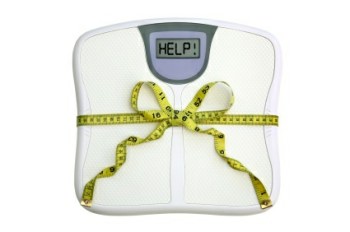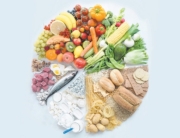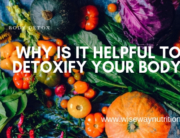How do you know if a program for weight-loss is the right one for you? There are so many different programs it is confusing to know if weight-loss advice will actually work. Some point the finger at nutrients, such as fat or carbohydrates, and deem them responsible for weight gain so advice to strictly reduce or eliminate their intake is promoted. Unfortunately weight management is not that simple for people, and restricting or eliminating entire food groups not only disrupts metabolic function it is confusing people even more.
The utilization of nutrients are complex processes which most people aren’t interested in deeply understanding as a means of attaining their ideal weight. Further compounding the process of weight management are the effects of toxins from chemicals, preservatives, additives, pesticides, herbicides (and many others) which are used in our food supply, cleaning products and beauty products, and are major factors contributing to metabolic disruption, weight gain and slow weight-loss. Excessive and limited calorie consumption can result in the same weight management problems if the food consumed is contaminated with toxins and has low nutrient density, because it is comes from a refined and highly processed source. There are thousands of food products on grocery store shelves posing as real food. These imitation foods constitute a realm of contributing factors that make losing weight difficult and gaining weight exponential.
I am going use my blog as a platform for weight management the next several weeks to guide you through the layers of considerations you can address to move towards your weight-loss goals.
Action Step 1:
Take 10 seconds to consider the quality of your food choices every time you eat and drink
♥Choose S.O.U.L food: seasonal, organic, unprocessed and locally sourced as often as you can. Choosing whole foods provides the highest nutrient density and the least amount of added chemicals and preservatives and protects you from consuming extra servings of sugar, salt and fat. Foods from a box, bag, bottle, package, carton and can should be kept to a minimum when trying to lose weight (and at most other times!)
♥Whole foods (foods that look as they do in nature) yield the most nourishment. Consuming fat from whole foods, such as, olives, avocados, wild fish, nuts and seeds is a better choice than getting fat from added oils, spreads and sauces. Science affirms there are numerous therapeutic health benefits derived from synergistic nutrients inherent in eating whole foods. Choosing to consume fat from whole food sources also helps manage the amount of fat being consumed. Refined fats are hidden in processed foods making it nearly impossible for people to detect how much fat they are consuming when eating a serving of processed food. Food labels can point you in the direction of recognizing how much fat, sugar and salt are in foods, but the regulation guidelines allow for the actual amounts to be manipulated. Food manufacturers are often very savvy at marginalizing serving sizes to keep the actual amounts of fat, salt and sugar hidden from consumers.
Wise Way’s favorite whole food snacks
1. Roasted Sugar Snap Peas with wasabi and a side of organic nori seaweed
2. Mary’s Gone Crackers Flax Crackers with raw almond butter and a drizzle of raw honey
3. Raw almonds stuffed inside medjool dates
4. Spicy-Thai trail mix
5. Roasted black beans coated in cumin, chili pepper and cayenne






